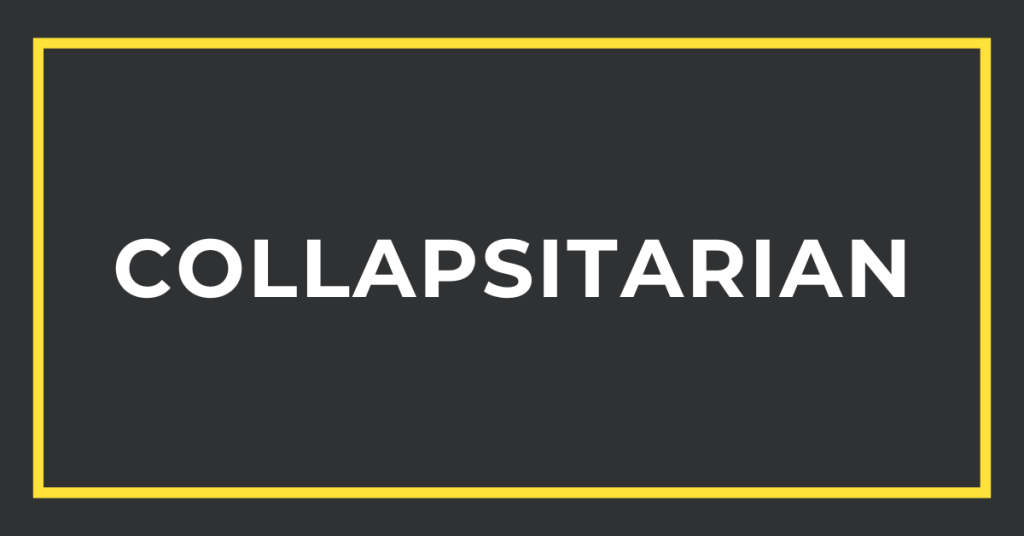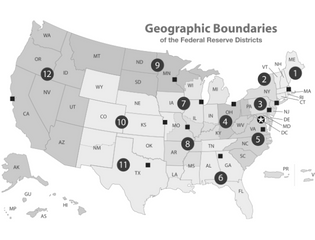Collapsitarian
Table of Contents

There are preppers, and then there are preppers. Some people have a generator and a couple extra days of food. Other people have a compound stocked with everything they need to wait out the end of the world as we know it. And some — the adherents of collapsitarianism — are chomping at the bit for the world to hurry up and end already.
The distinguishing feature of collapsitarianism, however, is not its zeal for social and economic collapse. It’s the sense that collapse isn’t just desirable, but inevitable. Collapsitarians do not prep with an eye not toward some potential abstract disaster. Rather, they use public choice theory to postulate a specific and inevitable collapse.
What is a Collapsitarian?
A collapsitarian is a person who believes in the inevitability of socio economic collapse of the world as we know it. They do not yearn from it, but are simply accepting it.
Collapsitarians and the Tragedy of the Commons

Specifically, collapsitarianism is concerned with what is known as the Tragedy of the Commons. This is when a common resource is overexploited by rational actors all behaving in their own self-interest in a way that negatively impacts the whole, potentially depleting the resource entirely.
While generally associated with natural resources, contemporary central banks are the Tragedy of the Commons to the nth degree. Large investment banks rationally act to acquire as much fiat currency as possible; but this causes broader social calamities, from runaway inflation to total social collapse.
Collapsitarians hold a myriad of doomsday prophecies. They might be prepping for the Federal Reserve’s fiat to collapse, or environmental degradation, or the gears of industrialism burning themselves out, or the unsustainability of globalism.
Dmitry Orlov and The Five Stages of Collapse
The Godfather of collapsitarianism is a man named Dmitry Orlov, a Russian-American engineer. He believes that the collapse will come as a result of bloated military budgets, trade imbalances, massive government debt, a political system without the will to act, and Peak Oil.
A former citizen of the Soviet Union, his book The Five Stages of Collapse identifies the eponymous five stages as:
- Financial Collapse: An insolvent banking system causes waves of bank closings.
- Economic Collapse: Shortages of essential consumer goods and a return to barter and gift economies.
- Political Collapse: Naked corruption begins to replace essential government services.
- Social Collapse: Social solidarity and institutions erode, leading to civil war.
- Cultural Collapse: An end to social empathy and social solidarity, collapse of concern for the less fortunate.
- Ecological Collapse: Destruction of the natural environment and large-scale depletion of natural resources.
What collapsitarians have in common is a skepticism about the very notion of human progress — that progress is possible or even desirable. For collapsitarians, growth has limits and these limits are rapidly approaching.
Politics & Social Science: Best Political Non-Fiction Novels
Welcome to our curated list of must-reads for anyone serious about understanding the world of politics and society. Now, let’s be clear, this isn’t your typical collection of dry, academic…